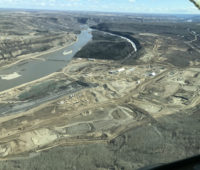Philip Raphals
Cofounder and executive director of the Helios Centre, a nonprofit energy research and consulting group based in Montreal,
Philip Raphals has been recognized as an expert witness by energy regulators in the provinces of Quebec, Nova Scotia, and Newfoundland and Labrador, in many aspects of sustainable energy policy, including least-cost energy planning, utility regulation, and green power certification. He has also provided expert affidavits in proceedings before the US Court of Appeals for the District of Columbia Circuit (1999) and for the Federal Court of Canada (2012).
Raphals appeared as an expert witness in hearings before Joint Review Panels concerning large hydropower projects in Labrador (the Lower Churchill Hydroelectric Generation Project) and British Columbia (Site C).
In 1997, he advised a standing committee of the Quebec National Assembly in its oversight hearings concerning Hydro-Quebec. In 2001, he authored a major study on the implications of electricity market restructuring for hydropower developments, entitled
Restructured Rivers: Hydropower in the Era of Competitive Energy Markets. In 2005, he advised the Federal Review Commission studying the Eastmain 1A/Rupert Diversion hydro project with respect to project justification.
Raphals has been an invited speaker before the Senate Standing Committee on Energy, the Environment, and Natural Resources and at numerous energy industry conferences, as well as at Yale and other universities. In 2013, he was part of an expert roundtable on electricity surpluses and economic development convened by the Quebec Commission on Energy Issues.













